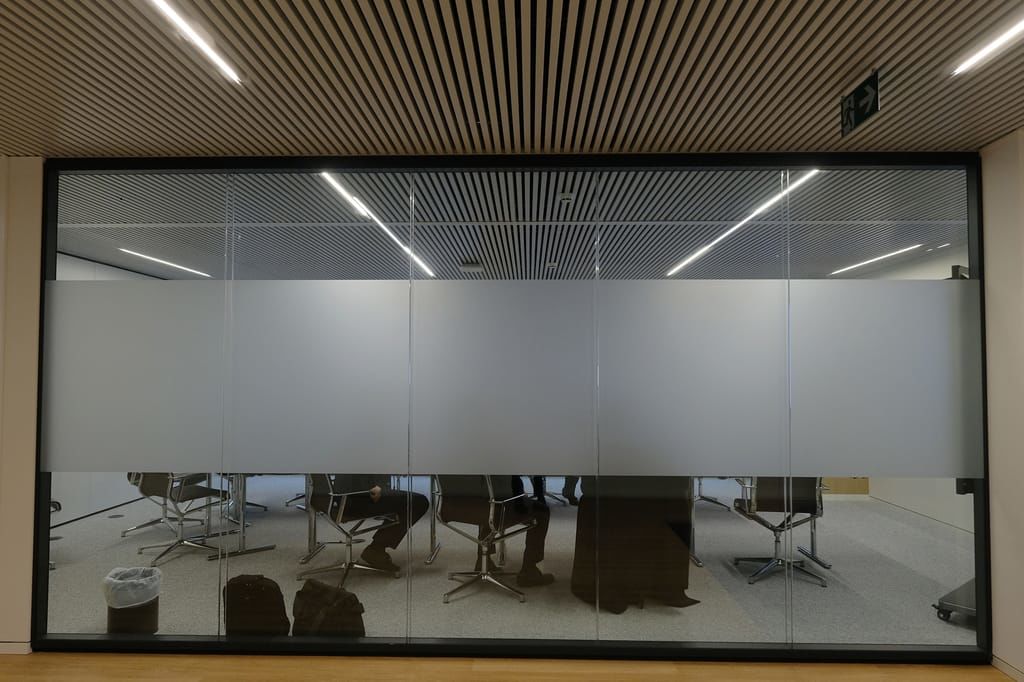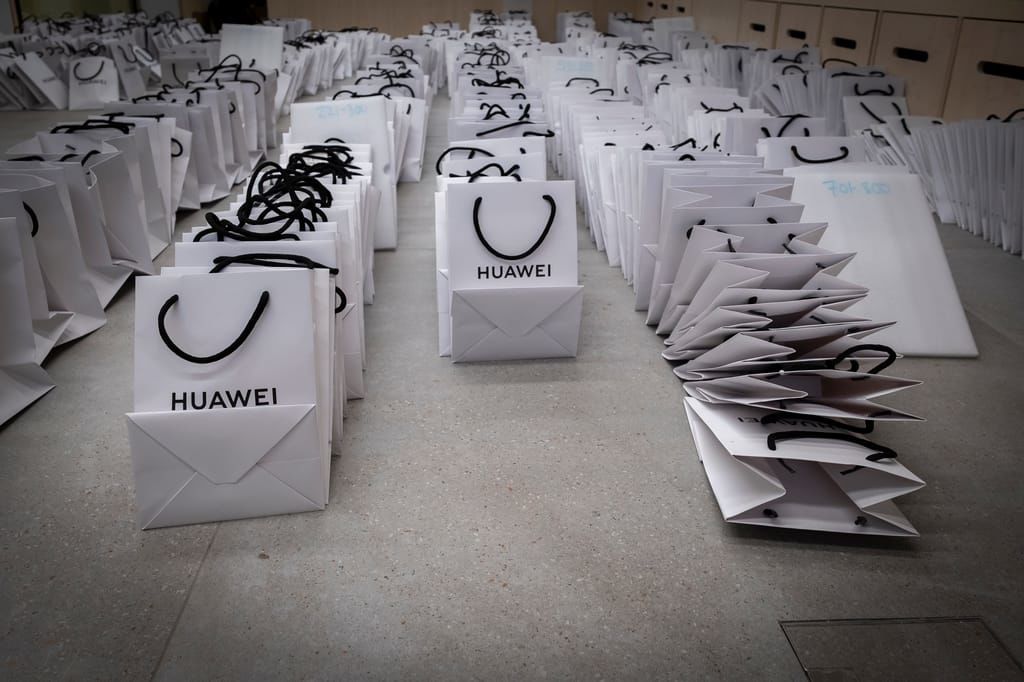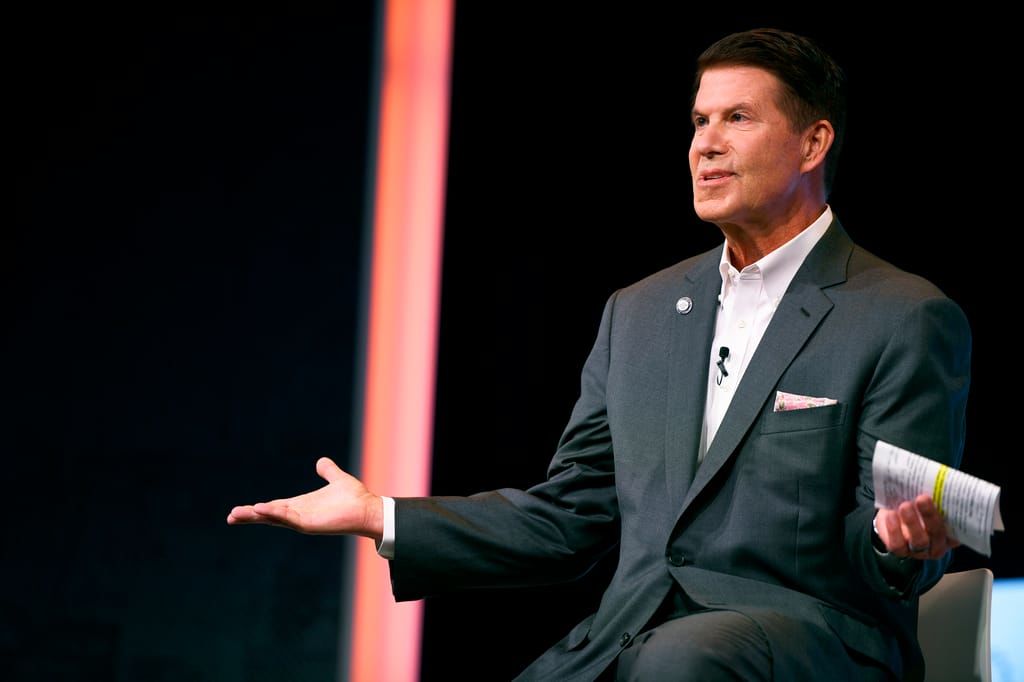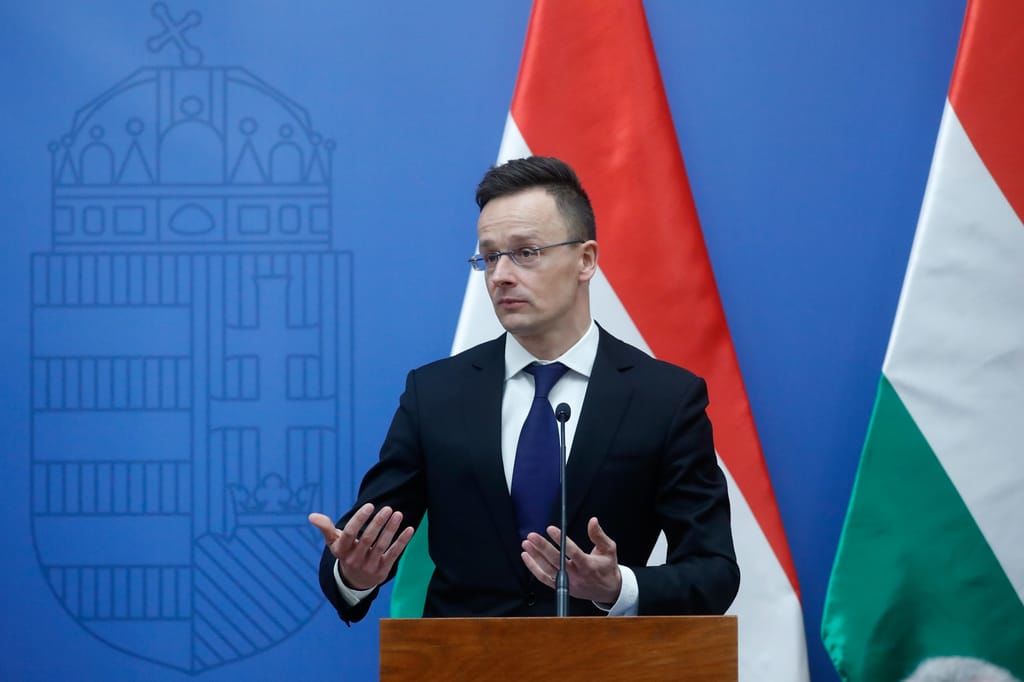Hong Kong News

How Washington chased Huawei out of Europe
Huawei is giving up on Europe.
The Chinese telecoms giant is pushing out its pedigreed Western lobbyists, retrenching its European operations and putting its ambitions for global leadership on ice.
The reasons for doing this have little to do with the company’s commercial potential — Huawei is still able to offer cutting-edge technology at lower costs than its competitors — and everything to do with politics, according to interviews with more than 20 current and former staff and strategic advisers to the company.
Pressed by the United States and increasingly shunned on a Continent it once considered its most strategic overseas market, Huawei is pivoting back toward the Chinese market, focusing its remaining European attention on the few countries — Germany and Spain, but also Hungary — still willing to play host to a company widely viewed in the West as a security risk.
“It’s no longer a company floating on globalization,” said one Huawei official. “It’s a company saving its ass on the domestic market.” Like most of the other Huawei employees interviewed for this article, the official spoke on the condition of anonymity to freely describe the company’s travails.
Huawei’s predicament was summed up by the company’s founder Ren Zhengfei in a speech to executives at the company’s Shenzhen headquarters in July. He laid out the trifecta of challenges the company has faced over the last three years: hostility from Washington; disruptions from the coronavirus pandemic; and Russia’s invasion of Ukraine, which upended global supply chains and heightened European concerns about over-dependence on countries like China.
“The environment we faced in 2019 was different from the one we face today,” Ren said in his speech, which wasn’t made public but was seen by POLITICO. “Don’t assume that we will have a brighter future.”
“We previously had an ideal for globalization striving to serve all humanity,” he added. “What is our ideal today? Survival!”
‘The moment globalist Huawei died’
As the company goes into hibernation in the West, it’s sidelining or pushing out the senior Western managers it hired just a few years ago to counter the U.S. assault on its business.
“Westerners were listened to,” one Huawei official working in Europe said. “This is no longer the case … No one is listening.”
Huawei’s Brussels office — once a key hub for the company to lobby against European restrictions on its kit — has been folded fully into European management, now headquartered in Düsseldorf.
The office this summer lost its head of communications, Phil Herd, a former BBC journalist who joined the company in October 2019 at the start of its pushback against political pressure in Europe. The office has also recently lost at least three other key staff members handling lobbying and policy. (Tony) Jin Yong, the chief representative to the Brussels institutions, is now in charge of government affairs across Western Europe and spends most of his time in the Düsseldorf office.
 Employees sits in a meeting room inside Huawei Technologies Co. Cyber Security Transparency Centre in Brussels
Employees sits in a meeting room inside Huawei Technologies Co. Cyber Security Transparency Centre in Brussels
In London, Huawei’s U.K. Director of Communications Paul Harrison left his role in October, with other officials leaving around the same time. Harrison joined Huawei from a senior news editing job at U.K. broadcaster Sky News in 2019.
In Paris, the company’s Marketing and Communications Director Stéphane Curtelin left his role in September, the local magazine Challenges reported. Before then, the Paris office lost its Head of Government and Security Affairs Vincent de Crayencour, a veteran French cybersecurity official with extensive government experience who joined Huawei in 2020. The company’s Chief Representative of the Paris Office Linda Han also left her role before the summer.
In Warsaw, the company’s local PR manager Szymon Solnica departed Huawei in September. “The crises I’ve dealt with on a daily basis in recent years were colossal ones,” he wrote in a LinkedIn post announcing his departure.
Huawei officials speaking in authorized interviews dismissed the departures as regular turnover. “There is a fluctuation always in companies, not only in Huawei … Some people are leaving and some other people are coming,” a spokesperson for Huawei Europe said in an authorized interview last week.
But others in the company privately acknowledged the departures reflect a radical shift that began in September 2021.
That was when Meng Wanzhou — Huawei’s chief financial officer and Ren’s daughter — returned to the company’s headquarters in Shenzhen, after spending nearly three years in Canada facing extradition to the U.S. on charges of conspiracy to commit bank fraud and wire fraud.
“The moment Meng got off the plane was the moment the globalist Huawei died,” one official said.
As the daughter of the founder — and the presumptive heir to the company’s leadership — Meng had played a key role in the legal and public relations fight between Huawei and Washington. Since returning from Canada, she reached Huawei’s top ranks as deputy chairwoman at the company’s headquarters and triggered a corporate reshuffle at the top.
(Catherine) Chen Lifang, who led the firm’s global communications department during the height of American pressure, was moved off the board of directors and into a role on the supervisory board.
The global comms department is now represented on Huawei’s board by Peng Bo, known in Europe as Vincent Peng, the former president of Huawei’s Western Europe region. Peng’s ascendency is part of the company’s efforts to move its European operations closer to Shenzhen.
The agenda to streamline public affairs in Europe is led by Guo Aibing — a former journalist for Bloomberg News in Hong Kong. Guo was parachuted into Europe and is executing cuts and consolidation of the firm’s lobbying and communication across the Continent.
The company is also restructuring its activities in Europe. The company’s plans — previously unannounced — are to consolidate the entire Continent into just one area of operations, headquartered in Düsseldorf.
 Hampers and gifts at the new Huawei store in Barcelona | Paco Freire/SOPA Images
Hampers and gifts at the new Huawei store in Barcelona | Paco Freire/SOPA Images
Huawei currently divides the Continent into two markets: Western Europe, run from Düsseldorf; and Eastern Europe and the Nordics, with a top executive based in Warsaw.
The restructuring “will help us to bring more synergies within the whole European business operation; will bring more value more directly to our customers here in Europe,” said the Huawei Europe spokesperson.
Broadly, the company’s staffing levels, currently around 12,000 people, will remain “stable,” the spokesperson said.
The company is also retrenching elsewhere, according to Ren. “We will give up markets in some countries,” the firm’s founder said in his speech this summer. “For example, we will give up markets in the Five Eyes countries and India.”
The “Five Eyes” refers to an intelligence-sharing arrangement between the U.S., U.K., Canada, Australia and New Zealand. All five countries have banned or are in the process of banning Huawei and other Chinese companies from their critical infrastructure because of security concerns.
Instead, Huawei is concentrating on its domestic market, which accounts for a large proportion of global 5G and where Sweden’s Ericsson and Finland’s Nokia are struggling to maintain market share.
Trump effect
Huawei’s strategic retreat is remarkable for a company that until recently poured millions of euros into lobbyists and PR campaigns in an effort to expand and maintain its European foothold.
Throughout most of the 2010s, Huawei was considered by many in Europe to be a friendly face among the tech firms cuddling up to power. Peculiar in its approaches, yes, but cordial and — to many — beneficial to the Continent’s interests because it increased competition and cut the price tag on the next generation of telecoms networks.
The company became known for its generous gift bags, often including a Huawei phone, and lavish parties in glamorous venues featuring fancy buffets and dance performances — like its reception celebrating the Chinese new year at the Concert Noble in Brussels.
Glitzy bashes later became part of a supercharged response to political headwinds from Washington over concerns that the Chinese-built telecoms infrastructure poses a serious security and spying risk.
Those headwinds started blowing under U.S. President Barack Obama’s administration but reached hurricane force following Donald Trump’s election. By 2019, the company was under American sanctions, with Ren’s daughter Meng in Canada awaiting the result of a U.S. extradition request.
Keith Krach, a former under-secretary of state in the Trump administration, recalled how Washington was “hitting the panic button.”
He recalled asking European ministers about their relationship with China. “And they’d say, ‘Well, they’re an important trading partner’ and all that. And then they looked at both sides of the room, there’s nobody in the room, and whispered to me: ‘But we don’t trust them.’”
To navigate the geopolitical storm, the firm offered six-figure salaries to top operators across the Western world. It assembled a high-caliber team of former Western journalists and politicians with direct lines to places of power like the Elysée and Westminster, POLITICO learned from several who received such offers.
Initially, the gambit seemed to work.
Huawei’s message — that the U.S. itself posed spying risks and that Washington’s aggression was driven by economic interests — gained traction, particularly in places like Germany, where Trump proved a useful foil.
“The case that Trump made was almost more counterproductive,” said Thorsten Benner, director of the Global Public Policy Institute in Berlin. Huawei also received support from big telco operators, who saw value in the cheap equipment combined with responsive customer service.
By the beginning of 2020, Huawei seemed to have weathered U.S. calls for all-out bans. On January 28, then-U.K. Prime Minister Boris Johnson gave the company the green light to build part of the country’s 5G infrastructure. Just a day later, the European Union presented a plan to shift away from over-reliance on Chinese vendors but left the door open for Huawei to lobby national governments to keep market access for its technology.
 Keith Krach said the U.S. was hitting the panic button
Keith Krach said the U.S. was hitting the panic button
Then came the pandemic. With the coronavirus originating from Wuhan killing thousands, Trump ramped up his anti-China broadside in May 2020 with fresh sanctions against Huawei that basically cut off their supply of semiconductors.
By July, the U.K.’s Johnson completely reversed course and announced all Huawei equipment would have to be stripped from British 5G networks, even as the government estimated the move would delay the rollout of the technology and add half a billion pounds in costs.
Throughout 2020 and 2021, European governments including France, Sweden, Romania, the Baltic countries, Belgium and Denmark either banned Huawei equipment in key parts of the country’s 5G network or required its operators to wean themselves off its kit in the medium term.
Huawei’s smartphone business — once on its way to challenging Apple and Samsung in Europe — meanwhile was crushed by U.S. sanctions that cut its devices off from Android, the Google-owned operating system.
Putin changes the calculus
These setbacks were painful, but they weren’t yet considered fatal. Trump’s election loss and the ebbing of the pandemic in Europe seemed to offer an opportunity for a counteroffensive.
At the beginning of 2021, Huawei’s Brussels lobbyists were still optimistic that Europe’s hunger for cheap, speedy 5G installation would win out over security concerns. They even had meetings lined up in the European Parliament to make their case.
Those meetings got canceled on February 24, the day Putin launched his all-out invasion of Ukraine. For many in Europe, the risk-benefit calculation regarding Huawei had changed overnight.
“The biggest change I’ve seen came from the realization that we’re dependent on Russian gas — especially in Germany,” said John Strand, a telecoms analyst who has tracked Huawei’s market impact in Europe for the past years. “It begs the question: What’s worse, being dependent on Russian gas or on Chinese telecoms infrastructure?”
Under President Joe Biden, pressure on Huawei only increased, and Washington’s warnings now come from a more sympathetic messenger. In October, the European Commission issued a fresh warning against using Huawei technology to underpin 5G networks, and the U.K. government reaffirmed its requirement to strip Huawei equipment from British telecoms infrastructure.
The company’s travails have knocked the legs from underneath its lobbying efforts — and eaten into its market share.
Before the pandemic, the company regularly hosted European politicians, journalists and business leaders at its Shenzhen headquarters, a massive campus with buildings in different European architectural styles showcasing its global ambitions.
China’s zero-COVID policy made that impossible.
The company for years was the biggest spender at the annual Mobile World Congress in Barcelona, the world’s largest telecoms industry event. This year, the company’s on-the-ground presence was a pale imitation of previous showings, which it used to launch new products with razzle-dazzle and astronomical marketing budgets.
But perhaps no high-flying event illustrates the extent of the turnaround than the World Economic Forum in Davos, which once counted Huawei among its main sponsors. On January 21, 2020, just a week before Johnson sided with Huawei over Trump, Ren was onstage at the alpine resort, discussing the future of AI with “Sapiens” author Yuval Noah Harari.
The next year, the global gathering of political power players and financial titans in Davos was, thanks to the pandemic, canceled. When it reconvened in the summer of 2022, Huawei top chiefs missed the gabfest. Under Beijing’s zero-COVID policy, they couldn’t leave China.
Geopolitics hits the balance sheets
The firm still has a solid share in some big national markets, among them Germany and Spain, industry analysts say.
A 2020 study by Strand Consult — still the most comprehensive public overview of Huawei’s footprint in Europe — showed just how deeply the Chinese firm was ingrained in European markets: In 15 out of 31 countries Strand studied, more than half of all 4G radio access network equipment (RAN) came from Chinese vendors.
But in many of these markets, authorities have imposed measures forcing operators to phase out or at least significantly limit the use of “high-risk vendors” — commonly understood to be state-affiliated Huawei and the Chinese military-linked telecom ZTE — in coming years.
These are beginning to bite.
In the early race to implement 5G, Huawei outpaced its rivals in Europe. However, as of early last year — right as European officials were changing direction on 5G security — Sweden’s Ericsson overtook Huawei in market share of new European sales of radio access networks, according to proprietary figures compiled by boutique telecoms research firm Dell’Oro, shared with POLITICO by an industry official. Radio access networks make up the largest chunk of network investment and include base stations and antennas.
The latest update, from the second quarter of 2022, showed Ericsson at 41 percent, Huawei at 28 percent and Finnish Nokia at 27 percent. This includes new sales of base stations and antennas across 3G, 4G and 5G — some of which is part of running contracts with operators.
For 5G RAN specifically, the shift is even clearer: Huawei lost its initial position as market leader at the start of the rollout; it now provides 22 percent of sales, with Ericsson at 42 percent and Nokia at 32 percent in Europe, Dell’Oro estimated.
Industry analysts say Huawei’s move to consolidate and scrap key public affairs roles could hurt the company in countries where it still has skin in the game: Most importantly, Germany, Italy and Spain. In these large European markets, governments have been slow to impose measures on “high-risk vendors” — and particularly slow and soft in enforcing them.
Europe’s largest operators, like Deutsche Telekom and Vodafone, also have running contracts with Huawei, meaning the Chinese firm is at least still providing maintenance and keeping networks running — and potentially still supporting parts of the 5G rollout.
But in Germany, at least, Olaf Scholz’s new government has taken a more critical stance on Chinese technology. This month, Economy Minister Robert Habeck — who has taken a hawkish approach to China — formally blocked Chinese investors from buying a German chip plant over potential security threats.
Budapest nights
Huawei, of course, hasn’t completely given up on Europe.
Those still giving the company face time in Brussels this summer were presented with a weighty gift bag.
In addition to glossy hardcovers from the company’s PR operation — with titles like “Choose a Smarter Future: A contribution to Europe’s next digital policy” and “Ten Years of Connecting Europe” — the bag contained a memoir by Frédéric Pierucci. A former executive with the French infrastructure manufacturer Alstom, Pierucci was arrested by the FBI on bribery charges in 2013 — just as the American conglomerate General Electric was negotiating to take over Alstom’s nuclear operations.
Titled “The American Trap,” the book argues that its author was a hostage in Washington’s secret economic war on its allies.
“One after the other, some of the world’s largest companies are being actively destabilized to the benefit of the U.S., in acts of economic sabotage that seem to be the beginning of what’s to come…” reads the publisher’s summary.
It’s a narrative with deep appeal inside the company, and one that creates a natural rapport with other governments that see themselves as standing up to liberal superpowers. As Huawei searches for friends on the Continent, Hungary — increasingly in opposition to the rest of the EU on how to engage with China and Russia — remains a vocal ally, and the company is leaning into that relationship.
This year, in September, Huawei’s CEE & Nordic region unit held its annual Innovation Day event in Hungary, home to the company’s largest European logistics center.
On the banks of the Danube, tech entrepreneurs schmoozed in English and Hungarian, with some Chinese and German mixed in, over made-to-order coffee and plentiful canapés at Budapest’s cupola-topped Castle Garden Bazaar.
Inside the conference hall, bilingual hosts teed up mini-documentaries about protecting local salmon breeds in Norway and preventing floods in Hungary. Small business execs highlighted drones that monitor crops in Austria and potential forest fires in Greece, all on Huawei 5G networks.
With simultaneous translation available in Hungarian, Huawei featured research it commissioned from the Economist Intelligence Unit reiterating Europe’s laggard status on 5G use and implementation. It was an implicit reminder that dismantling Huawei’s infrastructure will have real consequences.
But the company also highlighted what it hopes will be a bigger part of its portfolio: products less likely to inspire security concerns, like inverters for solar panels.
 Foreign Affairs and Trade Minister Péter Szijjártó said Hungary will stand firm against international pressure
Foreign Affairs and Trade Minister Péter Szijjártó said Hungary will stand firm against international pressure
“Huawei is committed to the vision of a green Europe,” said Jeff Wang, the company’s current head of public affairs and comms, in a video address to the Budapest crowd, where he noted the 10 years he spent working on the Continent.
For weeks leading up to the event, Huawei officials were pushing to get Prime Minister Viktor Orbán to speak. While that didn’t pan out, Orbán sent one of his top lieutenants — Foreign Affairs and Trade Minister Péter Szijjártó — to deliver a message.
“We are not going to discriminate [against] any investing company because of their country of origin,” Szijjártó said. Budapest will stand firm against “international pressure” he added, to block “the presence of Huawei here in Hungary.”
Radoslaw Kedzia, Huawei’s vice president for the CEE & Nordic region (and the first non-Chinese to achieve CEO status inside the company, in the Czech Republic in 2015), said there was no political calculation behind the double-down in Hungary.
“Let’s not demonize us, OK? We are like any other company,” Kedzia said.
If a business assessment offers the “prospect of the next 10-20 years of stable operation, then you think it is good to concentrate some of your resources in that particular country,” he added.
Likewise, the European spokesperson insisted, Huawei communicates with every country in the “same way, on the same level.” The company focuses on technology and does “not engage,” he said, in “political games.”
One thing is certain: When it comes to the great European game, Huawei has lost — and sent all its political players home.











